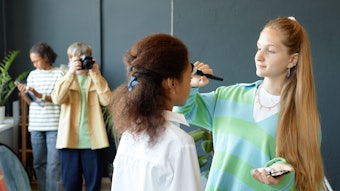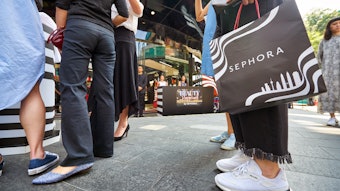Personal skin care made in the lab to perfectly match each individual customer is predicted to become a big trend in skin care. In a new survey, Canadean investigates the market potential of personal skin care in the U.K.
Currently, Canadean values the global market for personalized skin care to be worth US $12.2 billion. Many skin care brands have already responded by offering their consumers in-store skin consultancies to detect their skin type and match them with the right product. Now, the first movers in skin care are taking personalization to a new level when they offer a more scientific approach towards skin care with laboratory tests and individually labeled products.
U.K. consumers are ready for the laboratory approach to skin care, reports Canadean, and its new survey finds that many consumers are prepared to go far to find their personal skin cream match. In fact, 45% of U.K. adults say that they are interested in the laboratory approach to personal skin care, and many of these say that they are prepared to go to a specialized laboratory and would even prefer this compared to getting their personal product from other channels such as department stores or filling out online questionnaires. Of those interested in personalized care products, 54% say they are ready to provide blood, skin and hair samples to be tested in a laboratory, 51% would be interested in giving a DNA swab samples, and 52% would like to go to a medical dermatologist consultation.
Great Potential for the Beauty Industry
Preparing skin care products according to individual recipes takes time, and consumers will most likely have to wait to get their products made. According to the survey, consumers are prepared to wait for up to a month to receive their product, and 59% of consumers are also prepared to pay a premium for such products, indicating a great potential for the beauty industry.
“Over 22 % of skin care consumption by volume globally is driven by individualism," says Veronika Zhupanova, analyst at Canadean. "And with the development of new technologies, manufacturers have opportunities to take it to a whole new level. Factors such as allergies, genetic predisposal, nutrition, climate and exposure to the sun are all individual needs perfect for tailoring.”
How Does It Work in Practice?
When we are talking about personalization in skin care, there are two ways, Zhupanova explains: “Companies such as Dermalogica, Clinique and Nivea have a set of products and then guide their customers on which one will suit them best. However, I think that we will see more brands taking this trend even further with more niche products made one-to-one in a lab where the cost and waiting time is higher.”
In Russia, I.C. Lab offers consumers individually-made skin care products, produced with personal skin characteristics in mind. The customers are invited to the laboratory, where their skin is tested, and, in a few weeks, they can collect the product made specifically for them that satisfys the needs of their skin and features their surname on the package. At the moment, the brand is presented in Russia and the Ukraine. The cream is set at a premium price of 3000 RUB for 15ml eye-cream. The trend is also picking up slowly in the U.K.. In July, German brand Nivea, the U.K.’s fastest growing skin care brand, launched its ‘Face Facts Boutique’ for the new Cellular Anti-Age range. A rolling booth was set up in a number of U.K. shopping centers to provide skin consultations using a new skin technology to analyze the customers’ skin, advise on the best skin care routine and answer any skin-aging questions.










